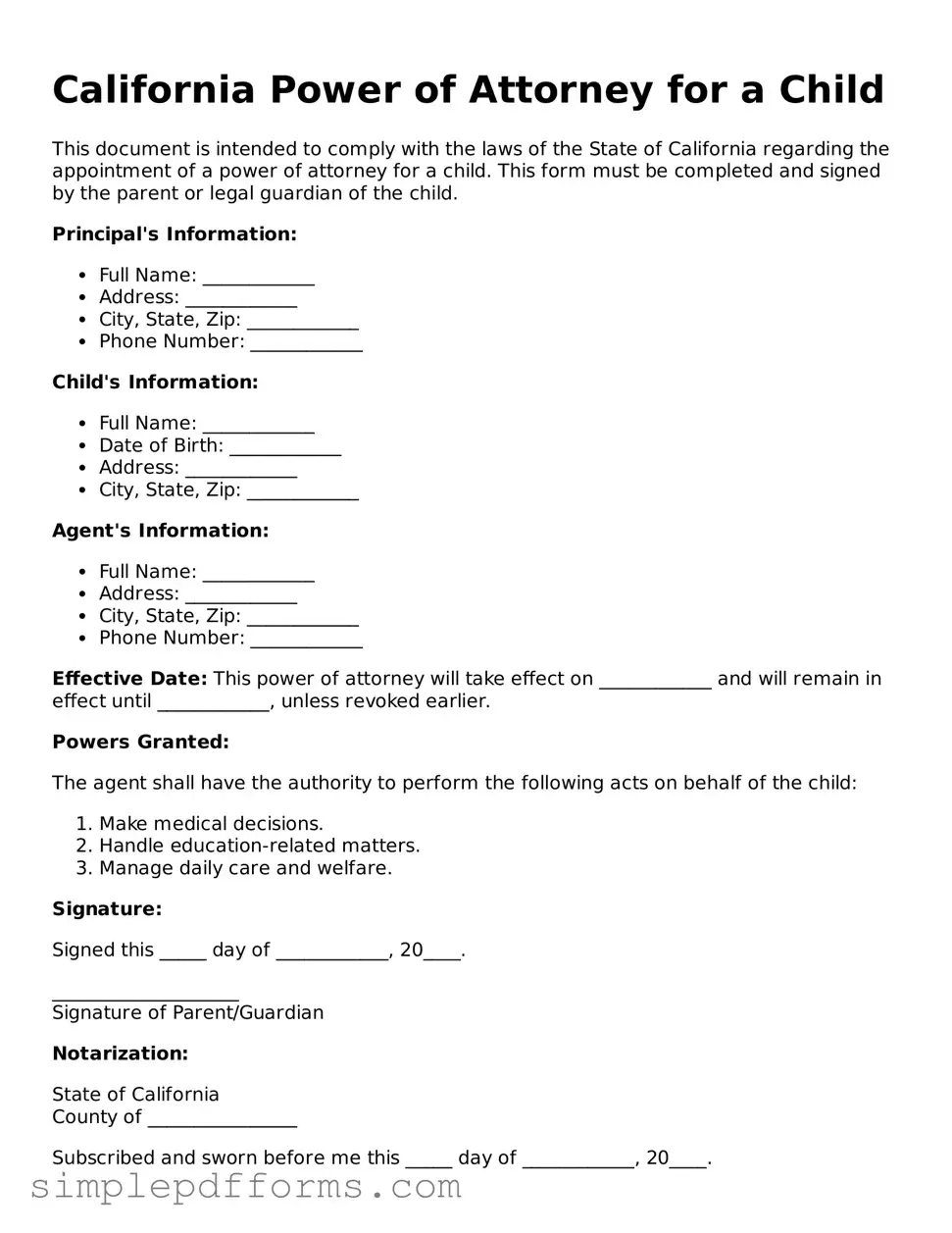Attorney-Verified Power of Attorney for a Child Document for California State
The California Power of Attorney for a Child form is a legal document that allows a parent or legal guardian to designate another adult to make decisions on behalf of their child. This form is particularly useful in situations where the parent is unable to care for the child temporarily, such as during travel or medical emergencies. By granting this authority, parents can ensure that their child's needs are met while they are unavailable.
Open Power of Attorney for a Child Editor Now

Attorney-Verified Power of Attorney for a Child Document for California State
Open Power of Attorney for a Child Editor Now

Open Power of Attorney for a Child Editor Now
or
Get Power of Attorney for a Child PDF Form
Your form is waiting for completion
Complete Power of Attorney for a Child online in minutes with ease.